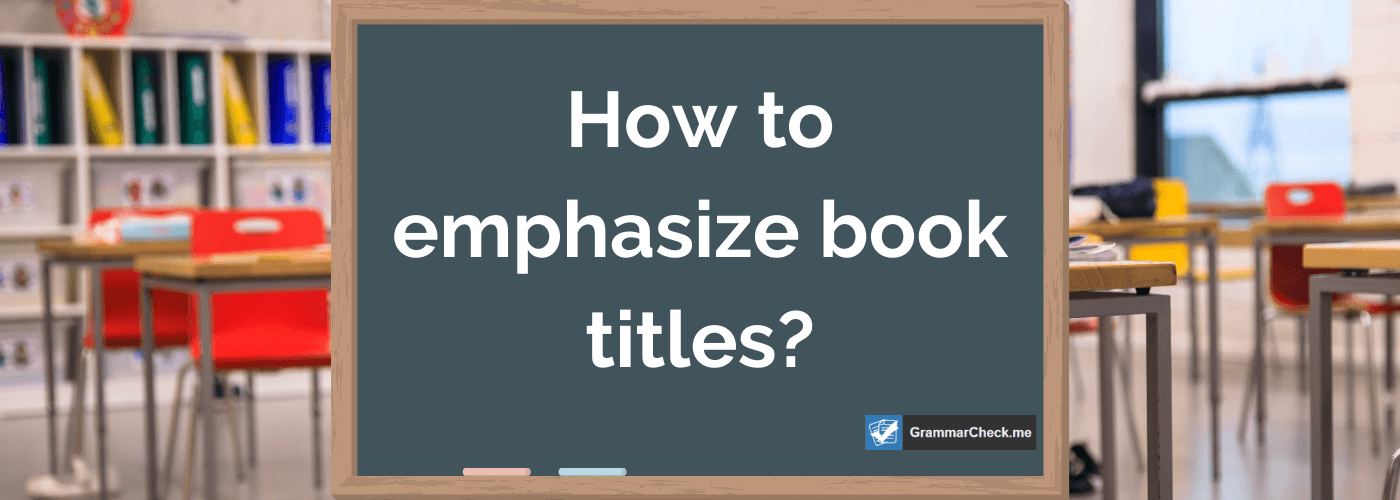There’s more to writing a compelling title than just putting a few words together. In fact, if you want to grab your reader’s attention from the start, there are a few specific things you need to do. In this article, we’ll walk you through five easy steps for creating an effective title that will hook your audience right away. So whether you’re a student writing a research paper or a business owner crafting a new marketing campaign, keep these tips in mind and see how your titles take on a whole new level of impact.
5 Steps To Writing Titles

The title is the most important part of a piece of writing. The title is the bait, and to hook a reader, you must give them something they want to bite.
Think about a fancy French bakery, what is it that makes you go inside? Most of all, it’s that glorious aroma that wakes the appetite and promises something good to sink your teeth into in return for your time and money.
Similarly, a title must do the same; it must hold the promise of something good for the reader, something which will benefit them. Whether you are writing a blog post or an effective memo, titles are extremely important to draw the reader’s attention.
1. What we can Learn from the Experts
The Internet is the most competitive place for writers fighting to get their work read. 80% of people searching a relevant topic may see your headline, but only 20% will read it. The tricks that online content writers use to craft their titles can benefit any writer, regardless of whether they are working online or offline.
2. Why Keywords are the Key
Everyone’s heard about the importance of including keywords when writing for the internet, but the same principle applies whether you are writing online or offline.
Keywords for SEO (search engine optimization) are based on the words most people commonly associate with a topic. In other words, keywords are the words that most people will type into a search engine when looking for information on a certain topic, and the search engine will locate your article far easier if you have used those keywords in the title. Tools such as QuillBot and Grammarly are also great for SEO optimization.
Online or offline, writers that employ these keywords in their titles are speaking the language of the reader, and are much more likely to get their title noticed. It’s simple. Research SEO keywords, and you’ll write excellent titles.
3. How the “How to…” formula leads to success
In return for reading your writing, a “How to…” title offers an immediate benefit to the reader. They will learn how to achieve something they want.
On the internet, this is particularly important because people reading on the Internet read differently to people reading in print. There is so much information on the web, readers scan first to see if the piece is what they’re looking for, before navigating away if it isn’t. Having a great sentence starter is also key to keeping a reader hooked.
However, this also applies to offline writing. If the reader thinks they will gain something from reading the piece, they will be much more willing to give up their time.
4. Two Reasons Why List Titles are Effective
“List” titles are titles that utilize a numbered or bulleted list.
They are highly effective because:
- They are highly scannable, and readers can quickly see whether the content is what they are looking for.
- Numbered or bulleted lists make information much more easily digested and understood. The chances of the reader receiving their benefit in return for reading your content will be much more certain.
5. Why Using Question Words as Statements Works
Using question words, such as “Why…”, “How…” and “What…” in declarative sentence titles is highly effective because they also highlight the reward a reader gets if they read your content.
“How the Web Helps Writers Write” is much more compelling than “The Web Helps Writers Write”.
How to emphasize book titles?

Titles of larger works, such as books, magazines, newspapers, movies, and tv shows, should always be italicized.
For example, The Great Gatsby is a book, while The Tonight Show is a tv show. Titles of smaller works, such as chapters, articles, essays, short stories, and poems, should be enclosed in quotation marks.
No matter if you are writing in American or British English, there is no need to capitalize articles, prepositions, or conjunctions when they fall in the middle of a title. Be sure to read out post on what is a conjunction to learn even more!
For example,”The American Dream” is a chapter from The Great Gatsby. Finally, titles of songs and other musical pieces should be enclosed in quotation marks. So go forth and start italicizing (or,”If you’re feeling dangerous,” put quotation marks around) all the titles in your academic writing!
How To Write The Title Of A Play
Even for the most creative of writers, coming up with a play title can be tricky.
- Be Unique – It’s important to have something that really grabs people’s attention and stands out from the crowd. Be unique, and don’t forget to make it as memorable as possible!
- Brain Storm – One way to brainstorm ideas is to involve others in the process – enlist family members or friends to help come up with distinctive names for your piece. You can also draw inspiration from historical or cultural events related to the content of your play.
- Be Memorable – Create a title that will stick in the minds of your audience. If your title does not stick out, your audience will not think twice about it!
FAQs – Title Writing
When trying to format titles of chapters, you should always capitalize only the first word, last word, and all principal words in between. This makes your titles more readable and easier to identify. Additionally, using proper grammar and punctuation ensures that your readers will understand what you’re trying to communicate.
The title of a book should be placed in quotation marks when it is part of a larger work, such as a chapter in a book or a journal article. It is also generally acceptable to write titles of longer works, such as books, movies, or television series in italics. If you are writing an essay, however, you would use italics instead.
Titles of books, plays, films, periodicals, databases, websites are italicized. For example: “The Catcher in the Rye” is a book by J.D. Salinger. “Romeo and Juliet” is a play by William Shakespeare. “Citizen Kane” is a film directed by Orson Welles. “The New York Times” is a periodical. “Google” is a website. Italicize titles!
To write a book title in an essay MLA style (Modern Language Association), you should italicize the title of a self-contained work. For example, if you are referencing The Catcher in the Rye, you would put “The Catcher in the Rye” in italics. If you are referencing a chapter or section of a book, put the title in quotation marks. For example, if you are referencing Chapter 1 of The Catcher in the Rye, you would put “Chapter 1” in quotation marks. In APA Style, a separate cover page is needed for the tittle.
Titles of books should be underlined or put in italics. This is because titles of books are generally considered to be works of art, and as such, they should be set apart from the rest of the text. This rule applies to a formal and handwritten essay.
The Bottom Line
So, there you have it. Our 5-step process to writing great titles. We hope you found this helpful and that you’ll use these tips in your next essay or article. And remember, practice makes perfect – the more titles you write, the better you’ll get at crafting headlines that make people want to click!
